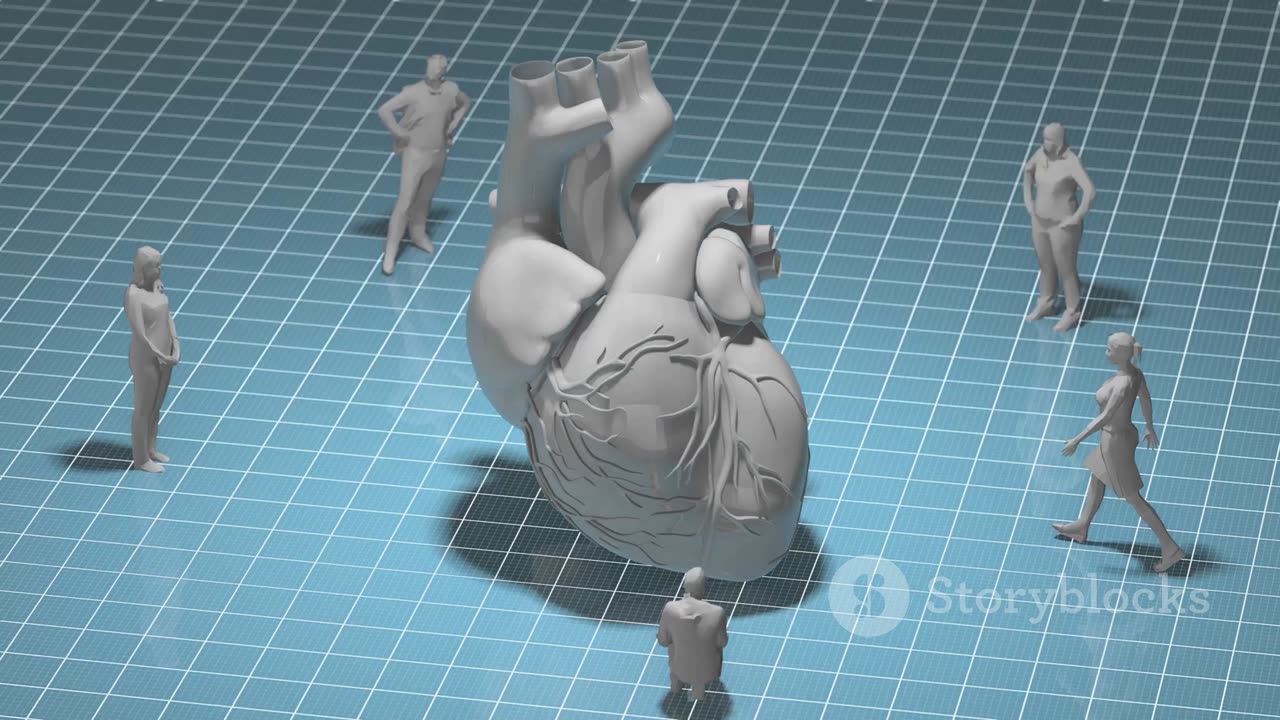Premium Only Content

Decoding PCOS A Comprehensive Guide
Introduction: Understanding the Enigma
Polycystic Ovarian Syndrome (PCOS) stands as one of the most common hormonal disorders affecting women of reproductive age. Yet, its complexity often shrouds it in mystery, leading to misconceptions and delayed diagnoses. Unraveling this enigma requires a thorough exploration of its risk factors, causes, diagnosis, and treatment modalities.
Risk Factors: Who's at Stake?
PCOS doesn't discriminate based on age or ethnicity, but certain factors elevate the risk:
Family history of PCOS or related hormonal disorders.
Obesity or a sedentary lifestyle.
Insulin resistance or Type 2 diabetes.
Hormonal imbalances, like elevated levels of androgens.
Causes: Delving into the Roots
The exact etiology of PCOS remains elusive, but several factors intertwine to manifest its symptoms:
Hormonal Imbalance: Elevated levels of androgens disrupt the ovarian function, leading to irregular ovulation.
Insulin Resistance: Impaired insulin function stimulates excess androgen production, exacerbating the hormonal imbalance.
Genetics: Genetic predisposition plays a significant role, with certain gene variants linked to PCOS susceptibility.
Diagnosis: Deciphering the Puzzle
Diagnosing PCOS requires a comprehensive approach, encompassing medical history, physical examination, and diagnostic tests:
Symptom Assessment: Irregular periods, excessive hair growth, and acne are common indicators.
Hormonal Evaluation: Blood tests reveal elevated androgen levels and disrupted hormone ratios.
Imaging Studies: Transvaginal ultrasound detects ovarian cysts and assesses their size and distribution.
Treatment: Navigating the Path to Wellness
Management of PCOS focuses on alleviating symptoms and addressing underlying hormonal imbalances:
Lifestyle Modifications: Dietary changes and regular exercise aid in weight management and improve insulin sensitivity.
Medications: Hormonal contraceptives regulate menstrual cycles, while anti-androgen medications mitigate symptoms like hirsutism and acne.
Fertility Treatments: Ovulation induction therapies assist women struggling with infertility due to PCOS.
Surgical Interventions: Ovarian drilling or ovarian wedge resection may be considered in select cases to restore ovulation.
Conclusion: Empowering Women's Health
Polycystic Ovarian Syndrome transcends its clinical manifestations, impacting various facets of women's health and well-being. Through enhanced awareness, timely diagnosis, and comprehensive management strategies, we can empower women affected by PCOS to reclaim control over their reproductive health and lead fulfilling lives.
To read more, visit our site ; https://healthheal.net/polycystic-ovarian-syndrome-a-comprehensive-guide/
-
 1:34:16
1:34:16
Kim Iversen
22 hours agoFmr Intel Operative EXPOSES UFO Program and Why America Is Falling
31.6K31 -
 2:08:18
2:08:18
Redacted News
3 hours agoBOMBSHELL! TRUMP SHUTDOWN ISRAEL'S PLANS FOR WAR WITH IRAN, TRUMP SLAMS FED JEROME POWELL | REDACTED
106K71 -
 1:13:52
1:13:52
Dr. Drew
5 hours agoThe RFK Files Coverup & Failed State Of California w/ Mark Groubert & Chris Moritz – Ask Dr. Drew
27K3 -
 1:15:43
1:15:43
vivafrei
4 hours agoCanada Debate RECAP! Logan Act Violation? FSU Shooting! Real ID or Big Brother Surveillance? & MORE!
61.4K40 -
 45:29
45:29
Candace Show Podcast
3 hours agoBlake Lively Is Time's Most Influential | Katy Perry Goes To Space | Candace Ep 178
55.6K100 -
 2:11:01
2:11:01
The Quartering
6 hours agoActive Shooter At Florida University, Karmelo Anthony Parents Press Conference, Gaming Gets Worse
145K84 -
 11:07:24
11:07:24
LFA TV
21 hours agoALL DAY LIVE STREAM 4/17/25
152K23 -
 42:24
42:24
Stephen Gardner
4 hours ago🔴Trump Urged to STOP Ukraine’s CASH GRAB NOW! - Col. Douglas Macgregor
54.6K35 -
 1:07:07
1:07:07
Michael Malice
1 day ago"YOUR WELCOME" with Michael Malice #359: Douglas Murray
49.3K22 -
 1:26:58
1:26:58
The HotSeat
4 hours agoPay Attention, This IS The ONLY Thing That Matters This Week!
35.6K5